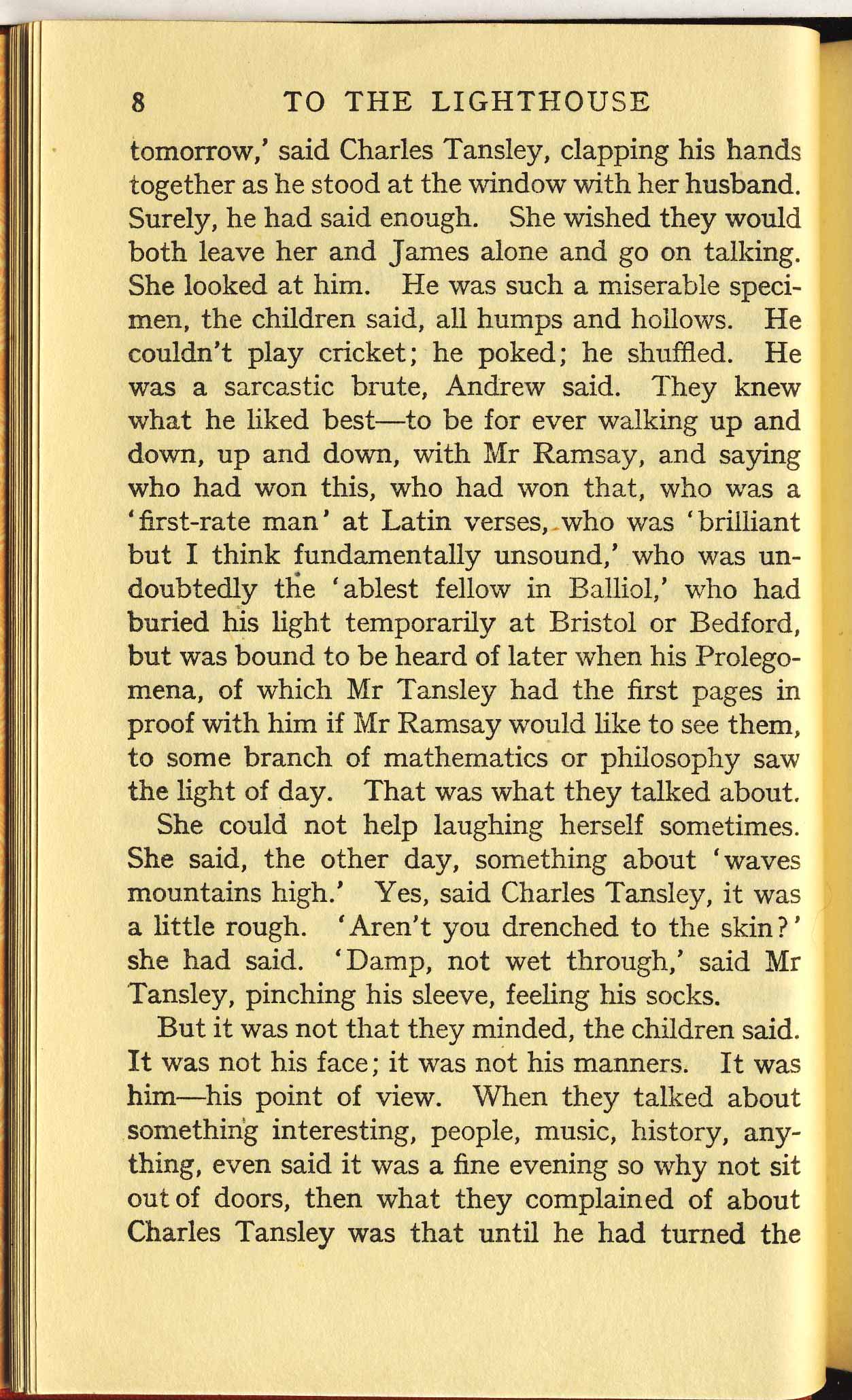
8 TO THE LIGHTHOUSEtomorrow,ŌĆÖ said Charles Tansley, clapping his handstogether as he stood at the window with her husband.Surely, he had said enough. She wished they wouldboth leave her and James alone and go on talking.She looked at him. He was such a miserable speci-men, the children said, all humps and hollows. HecouldnŌĆÖt play cricket; he poked; he shuffled. Hewas a sarcastic brute, Andrew said. They knewwhat he liked bestŌĆöto be for ever walking up anddown, up and down, with Mr Ramsay, and sayingwho had won this, who had won that, who was aŌĆśfirst-rate manŌĆÖ at Latin verses, who was ŌĆśbrilliantbut I think fundamentally unsound,ŌĆÖ who was un-doubtedly the ŌĆśablest fellow in Balliol,ŌĆÖ who hadburied his light temporarily at Bristol or Bedford,but was bound to be heard of later when his Prolego-mena, of which Mr Tansley had the first pages inproof with him if Mr Ramsay would like to see them,to some branch of mathematics or philosophy sawthe light of day. That was what they talked about.She could not help laughing herself sometimes.She said, the other day, something about ŌĆśwavesmountains high.ŌĆÖ Yes, said Charles Tansley, it wasa little rough. ŌĆśArenŌĆÖt you drenched to the skin?ŌĆÖshe had said. 'Damp, not wet through,' said MrTansley, pinching his sleeve, feeling his socks.But it was not that they minded, the children said.It was not his face; it was not his manners. It washimŌĆöhis point of view. When they talked aboutsomething interesting, people, music, history, any-thing, even said it was a fine evening so why not sitout of doors, then what they complained of aboutCharles Tansley was that until he had turned the









